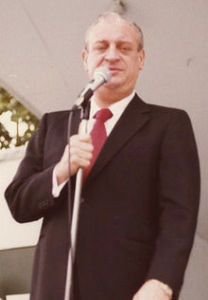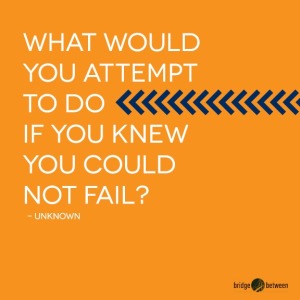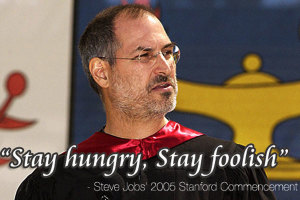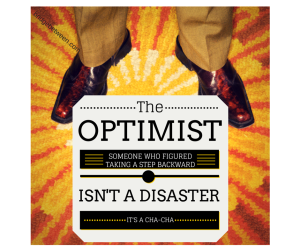“Stay hungry, stay foolish.” This was advice that the late Apple co-founder and CEO Steve Jobs gave to the Stanford University Class of 2005 during their commencement speech.
In his speech, Jobs in effect said that you will do your best if you do work that you love to do, not what other people think you should do (that may not be for you). This can be what “stay foolish” means, not necessarily acting reckless, but rather if what you love to do means that you will not be running with the herd. Do you risk being called foolish? Perhaps. Do what you love to do. This was advice that Jobs gave himself on a daily basis during his tenure at Apple.
Staying hungry means doing the work you love to do with such dedication, that it was as though each day of your life was your last. This puts in to stark perspective the preciousness of the choice you have in regard to the type of work or career you want to pursue.

Age does not matter. The choice can be there for you. Consider the late comedian Rodney Dangerfield. He did not start his successful stand-up comedy routine (highlighted by the self-effacing phrase “I don’t get no respect”) until he was in his early 40s, after working for some time as a salesman.
While this may not apply if you are in your 40s, never played professional basketball, and you want to be the next NBA all-star, there are still opportunities with other interests where age may not matter.
The inspiration here is to tap into your interests and you have an opportunity to do your best work, and without necessarily regard to age.
What do you really love? Sometimes finding the answer to that question is harder than we think. Try finishing these sentences to help get you started.
1. I can hardly wait to _____.
2. I really lost track of time when _____.
3. I always find the time / money for _____.
4. The best gift someone could give me would be _____.
Once you’ve established your interests, it’s time to reflect on them.
What about this activity is so interesting to you? What emotions do you experience when you do this activity? What could make the activity even better?
A great resource to help you pin point your unique interests and enable you to discover your best self is our founder Shannon Cassidy’s workbook V.I.B.E.. Your V.I.B.E. consists of four specific pieces:
Your VALUES.
Your INTERESTS.
Your BELIEFS.
Your ENERGY SOURCES.
Finding your V.I.B.E. helps our clients discover who they are and what makes them tick.
Please share with us in the comments – if you could add ONE more hour to each day, what would you do with it?
For more information on our programs, please visit our website: bridgebetween.com.

